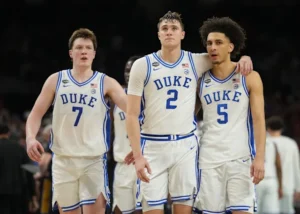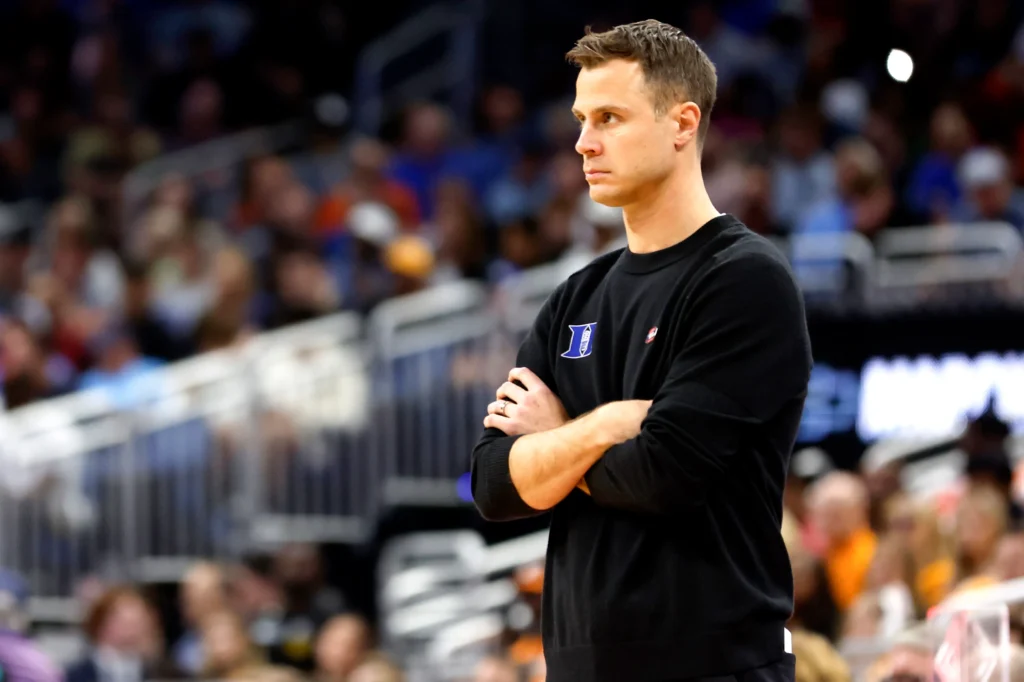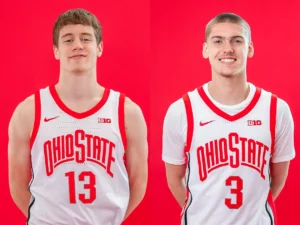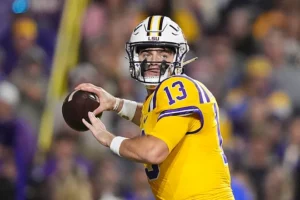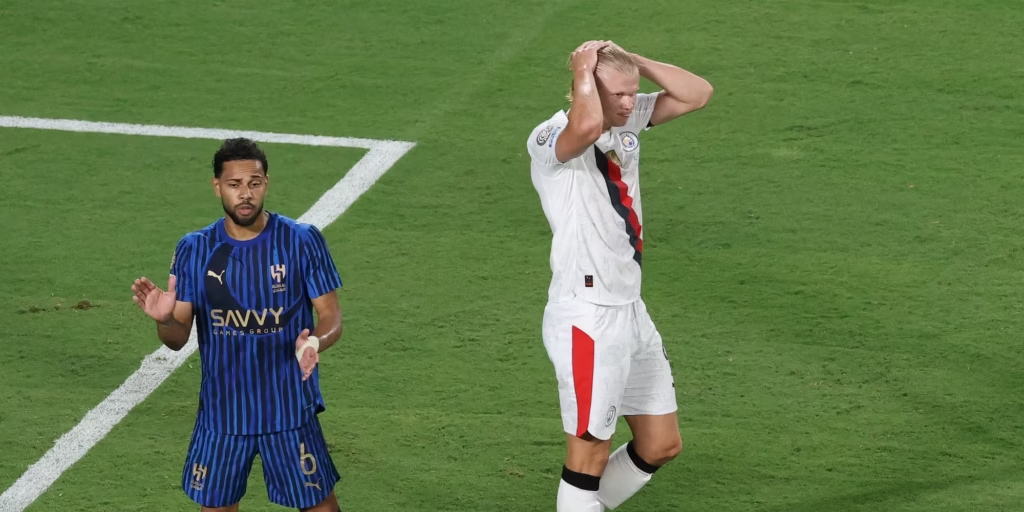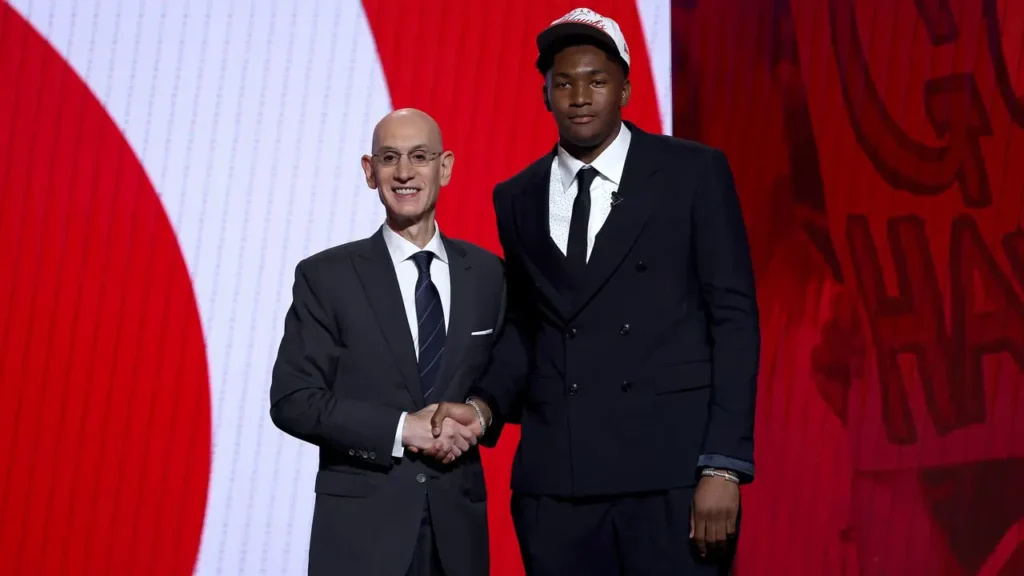
When the Atlanta Hawks selected Derik Queen with the 13th overall pick in the 2025 NBA Draft, few expected him to actually wear a Hawks jersey. Just moments after his name was called, it was revealed that Queen had been traded to the New Orleans Pelicans in a significant draft-day deal. The Pelicans, intent on securing their man, traded up from the 23rd pick and included an unprotected 2026 first-rounder to do it. The move was bold, criticized by many, and immediately thrust Queen into the center of attention—but it also marked a pivotal moment for both a rebuilding franchise and a rising star whose game speaks louder than the noise surrounding him.
Derik Queen’s journey to the NBA began in Baltimore, Maryland, where he first built his reputation as a high school standout at St. Frances Academy before transferring to the renowned Montverde Academy in Florida. His skill set blossomed at Montverde, where he played alongside other top prospects and honed his abilities against the nation’s best. A consensus five-star recruit, Queen ultimately chose to return to his home state and play for the University of Maryland. His decision to stay close to home carried both symbolic and strategic weight—he became the face of Maryland basketball, bringing national attention to a proud program looking to reclaim its former glory.
From the moment he stepped on the court at Maryland, Queen made an impact. He averaged 16.5 points and nine rebounds per game as a freshman and led the Terrapins in scoring and rebounding. He was named Big Ten Freshman of the Year and earned First-Team All-Big Ten honors. His polished post game, high basketball IQ, and impressive court vision set him apart from other big men in college basketball. Queen was not the type to rely solely on athleticism—he dominated with footwork, touch, and timing. He broke the Maryland freshman scoring record and racked up double-doubles, including a signature performance with 22 points and 20 rebounds in his collegiate debut.
One of the most talked-about moments of Queen’s season came during March Madness. With the game tied and the clock winding down, Queen banked in a buzzer-beater that sent Maryland into the Sweet Sixteen, capping off a brilliant night with poise and confidence under pressure. That shot not only solidified his place in Maryland lore but also raised his national draft stock. It was the kind of moment that left scouts nodding, recognizing the blend of skill and nerve that Queen brought to the game.
What made Queen stand out wasn’t just his production, but the manner in which he produced. At 6-foot-10 and around 245 pounds, he showed an advanced understanding of the game. His passing from the post drew comparisons to NBA bigs like Domantas Sabonis and Alperen Şengün. He could initiate offense, make reads off double teams, and hit cutters with precision. In a league increasingly reliant on playmaking from all five positions, Queen’s passing was an asset that set him apart. Still, not everyone was convinced.
While Queen’s offensive skill was never in question, scouts and analysts voiced concerns about his defense and athletic profile. He lacked elite explosiveness and lateral quickness, which raised doubts about his ability to guard in space or protect the rim at an NBA level. His combine results confirmed some of those concerns, with pedestrian vertical numbers and agility testing. Detractors worried he could become a defensive liability in switch-heavy systems, and several mock drafts projected him sliding into the late first round.
Despite these reservations, the Pelicans saw something more. After an underwhelming season plagued by injuries and inconsistency, New Orleans wanted a player who could bring high IQ, interior presence, and toughness. Derik Queen checked all those boxes. They made the move up to pick No. 13, sending out future draft capital to ensure they could land him. The decision sparked immediate debate. Critics questioned why the Pelicans, a team with considerable rebuilding still to do, would give up an unprotected pick for a player whose ceiling some considered limited. The move was called “one of the most baffling” of the draft by national media, and even some Pelicans fans were caught off guard.
But inside the Pelicans organization, there was no doubt. President of Basketball Operations Joe Dumars stood by the decision, praising Queen’s feel for the game, work ethic, and leadership qualities. He emphasized that Queen embodied the culture New Orleans wanted to build—tough, unselfish, and intelligent. Dumars brushed off the noise and doubled down on the belief that Queen could become a foundational piece moving forward.
For his part, Queen didn’t flinch. When asked about the controversial trade and the heavy expectations that came with it, he responded with quiet confidence. He acknowledged the noise but said he blocked it out. He vowed to prove the Pelicans right and make the front office “look like geniuses.” That statement, rather than feeling boastful, came across as focused—Queen was ready to get to work.
Social media took a brief detour into humor when Queen updated his LinkedIn profile to reflect his new job title: “Professional Basketball Player.” It was a light-hearted moment that humanized him to fans and gave a glimpse into his self-awareness. Amid the scrutiny, it showed that Queen was not only prepared for the pressure but able to navigate it with humility and good humor.
Looking at Queen’s fit in New Orleans, the potential is intriguing. The Pelicans already boast a young core with players like Zion Williamson, Herb Jones, and Dyson Daniels. What they lacked, however, was a center with a feel for offense and the ability to operate as a hub in the half-court. Queen brings that. He doesn’t need to dominate the ball to be effective—he can score with his back to the basket, operate from the elbows, and serve as a release valve in broken plays. His vision allows the offense to flow through him, especially when surrounded by shooters and cutters.
Defensively, there will be an adjustment. Queen will need to improve his lateral movement and conditioning to stay on the floor in high-stakes moments. However, his intelligence and effort could help mitigate some of the physical shortcomings. In time, he may prove capable of anchoring lineups that emphasize positioning and rotations rather than relying solely on athleticism.
The road ahead won’t be easy. As with all rookies, there will be growing pains—missed assignments, foul trouble, and moments where the speed of the NBA game feels overwhelming. But Queen has already shown that he embraces challenges. His time at Maryland, his composure under pressure, and his decision-making on the court all point to a player who understands the game at a deep level. He may not be the flashiest or the most explosive, but he is, undeniably, a basketball player’s basketball player.
What makes Derik Queen such an intriguing prospect is not just what he can do now, but what he might become. His floor is relatively high—most agree he will at least be a productive rotation big. But if his defense can improve and he becomes a more consistent mid-range or three-point shooter, the ceiling rises significantly. He could become the kind of big who keeps defenses honest, facilitates from the post, and becomes a calming presence in late-game situations.
The Pelicans took a risk on draft night, one that drew criticism and skepticism. But they also bet on something less tangible: a player’s character, basketball IQ, and the belief that skill and feel can overcome limitations. In Queen, they saw more than a stat sheet or a scouting report—they saw someone who fits their vision for the future.
As Queen prepares for his rookie season, all eyes will be on how he translates his college game to the professional level. The bright lights of the NBA and the expectations of justifying a controversial trade will follow him. But if his past is any indicator, he’s not just ready—he’s built for it.
Derik Queen may have been drafted by the Hawks, but his story truly begins in New Orleans. In a league that values versatility, intelligence, and unselfishness, he has a chance to carve out a unique path. Whether he becomes a cornerstone or a steady contributor, the Pelicans believe they’ve found a player worth believing in. And now, it’s up to Queen to prove them right.
